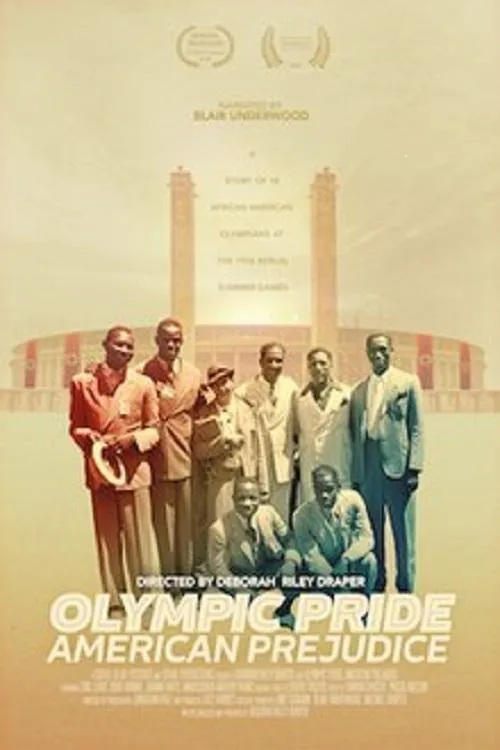Olympic Pride, American Prejudice

Plot
In the midst of the turbulent 1930s, a pivotal moment in history took place at the 1936 Summer Olympics in Berlin, Germany, an event that would shatter racial barriers both within the United States and internationally. The 1936 Summer Olympics were already a symbol of the rising conflict between the world powers, and for 18 African American athletes who competed under the American flag, it was a chance to challenge the notion of Aryan supremacy that was fervently promoted by the Nazi regime. The team, dubbed the "black auxiliary" by Hitler, was led by Jessie Owens, a 20-year-old sprinter from Alabama, who had already gained recognition for his incredible speed. However, the other members of the team – including Tidye Pickett, Cornelius Johnson, and Dave Albritton – were just as talented, and each had their own stories of overcoming racism and adversity to reach the Olympic Games. Upon arrival in Germany, the African American athletes were met with widespread hostility, not just from the Nazi regime but also from the American community that accompanied them. The racist attitudes prevalent in the United States during that era made it difficult for the athletes to gain support and recognition. However, the team's determination and their will to break the racial barriers only intensified their resolve to excel on the track. Under the guidance of their coach, Dean Cromwell, the team began to focus on their performances, knowing that they had to prove themselves to be the best in their respective events. The months of dedicated training paid off, and as the games began, the 18 African Americans took the stage to compete against the world's best athletes. The opening events set a benchmark for what was to come, with Cornelius Johnson dominating the high jump and Jesse Owens demonstrating his impressive speed in the 100 meters. Owens' victories not only stunned the German crowd, which was accustomed to the supremacy of the Aryan athletes but also sent shock waves across the United States. The events progressed, and each African American athlete gave their all, shattering world records in their respective categories and winning medals to the surprise and dismay of the Germans. Meanwhile, the American community accompanying the team faced pressure from those who refused to acknowledge the athletes' achievement, citing the fear that their success would only fuel racial unrest in the States. However, for many of the black athletes, competing in the Olympics was not just about individual glory but also about challenging the racist ideology prevalent in the United States and abroad. Jesse Owens, after being feted with international recognition, became an icon of the Civil Rights Movement, a shining example of what the African American community could achieve if given the chance. Tidye Pickett, an accomplished sprinter, became one of the first women to win an Olympic gold medal in her category, and despite her own triumphs on the track, was met with little fanfare upon her return to the United States. The racial prejudice within the American community continued to cast a shadow on her achievements, a stark contrast to the recognition she received from the international community. For the team, the experience was not just one of competing and winning. It was a poignant reminder of the long and arduous journey towards racial equality within the United States. Many of the athletes had grown up witnessing the horrors of Jim Crow racism firsthand, and for them, winning the Olympics was a way to challenge these racist ideologies head-on. As the team returned to the United States, they were met with widespread skepticism, their achievements largely ignored or dismissed by many in the American community. However, for Jesse Owens and his teammates, their triumph on the track served as a beacon of hope for a brighter, more inclusive future for African Americans. In many ways, the 1936 Olympics marked the beginning of the end of segregationist ideologies within the United States. The African American athletes who made history in Berlin, defying Nazi Aryan supremacy and Jim Crow racism, paved the way for later Civil Rights pioneers to follow in their footsteps. Their courage and accomplishments inspired a generation of young African Americans to stand up for their rights, challenge the status quo, and push for a society that valued equality and justice for all. The memories of the 1936 Olympics live on today, serving as a testament to the power of resilience and the enduring spirit of those who refused to accept the status quo.
Reviews
Recommendations



